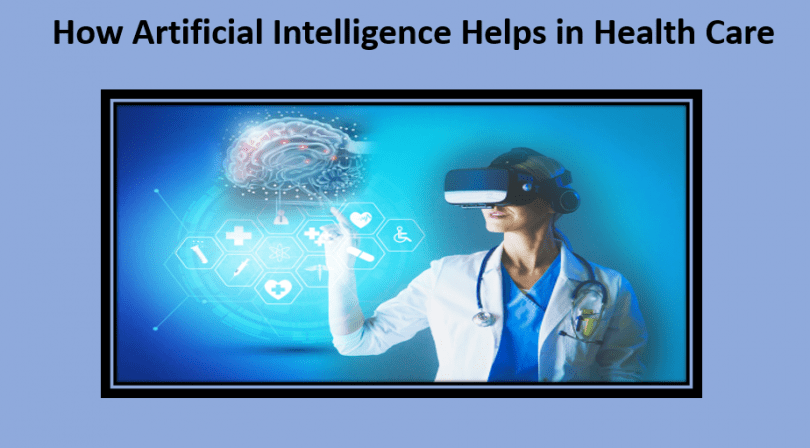Artificial intelligence has several administrative uses in the healthcare industry. In comparison to patient care, the utilization of AI in hospitals doesn’t change the game quite as much. However, using AI technology in hospital administration can result in significant cost savings. Insurance, clinical notes, revenue cycle management, and medical records administration are just a few of the applications of AI in healthcare.
Machine learning is another artificial intelligence application in medicine that is relevant to the administration of claims and payments. It can be used to match data from several databases. Millions of claims are submitted every day, and payers and providers must confirm that they are accurate When coding errors and false claims are detected and fixed, time, money, and resources are all saved.
AI help in health care by following ways
BRAIN-COMPUTER INTERFACES FOR MIND-MACHINE UNIFICATION
Computer communication is by no means a novel concept, but cutting-edge research is being done to directly connect technology and the human brain without the use of keyboards, mice, or monitors. For some patients, this research has significant effects. Some individuals may lose their ability to speak, move, and engage meaningfully in social interactions with others and their settings as a result of neurological disorders and injuries to the nervous system. Artificial intelligence-powered brain-computer interfaces could bring back those essential experiences for many who felt they were lost forever.
THE CREATION OF THE FUTURE RADIOLOGY TOOLS
MRI machines, CT scanners, and x-ray equipment all produce radiological pictures that provide non-invasive visibility into the interior of the human body. But many diagnostic methods continue to use real tissue samples from biopsies, which have risks like the potential for infection.
According to experts, artificial intelligence will make it possible for the forthcoming generation of radiological instruments to be precise and comprehensive enough to occasionally replace the requirement for tissue samples.
PROMOTING CARE ACCESS IN UNSERVED OR DEVELOPING AREA
Lack of qualified medical professionals, such as radiologists and ultrasound technologists, can severely restrict accessibility to life-saving treatment in underdeveloped countries all over the world. The session noted that there are more radiologists employed in the twelve hospitals that make up Boston’s renowned Longwood Avenue than there are in all of West Africa. By carrying some of the diagnostic tasks traditionally assigned to humans, artificial intelligence may be able to lessen the effects of this significant shortage of skilled clinical professionals.
ADDING INTELLIGENCE TO MEDICAL TECHNOLOGIES
The consumer world is being overtaken by smart technologies, which offer it all from actual video from inside a fridge to cars that can recognize when a driver is distracted.
Smart gadgets are essential in the medical setting for patient monitoring inside the ICU and other locations. Artificial intelligence (AI) has the potential to greatly improve results and may even lower expenses associated with hospital-acquired disease penalties by enhancing the ability to recognize deterioration, hint that sepsis is setting in, or feel the emergence of complications.
REDUCING THE IMPACT OF USING ELECTRONIC HEALTH RECORDS
EHRs have been crucial in the healthcare sector’s transition to digitalization, but the change has also brought up a number of issues, including cognitive overload, excessive documentation, and user fatigue.
Artificial intelligence is now being used by EHR developers to build more user-friendly interfaces and automating some of the repetitive tasks that take up so much of a user’s time.
According to Adam Landman, MD, Vice President and CIO of Brigham Health, users spend the bulk of their time on three activities: clinical recording, order entry, and sifting through the in-basket.




Leave a Comment